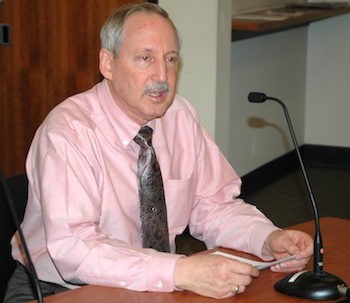ARLINGTON — Two years after the Oso slide, the United Way of Snohomish County is still helping to direct recovery efforts for the disaster.
On March 28, President and CEO Dennis Smith reported to Arlington City Council on where those relief efforts stand.
Of the nearly $2.7 million raised by United Way, more than $700,000, or 26 percent, came from corporations ranging from Microsoft to Boeing, and went to community organizations responding to the slide.
The remaining 74 percent, just shy of $2 million, came from private citizens across the country, and went directly to families and individuals who were personally impacted by the slide, either through the loss of loved ones, homes or property, or as a result of Highway 530 being blocked.
“We made the decision that none of those donations would be used to cover administrative costs,” Smith said.
Among the community organizations that the United Way directed monies toward, Smith credited the family resource centers of Darrington and Stanwood with providing support to the Arlington community, and with accelerating discussions that were already underway to establish a family resource center in Arlington itself.
Smith likewise noted how the Economic Alliance of Snohomish County’s initial study of the slide’s impact on the Stillaguamish Valley eventually grew into a proposal for sustainable development that the cities of Arlington and Darrington jointly submitted to the America’s Best Communities competition, to receive funds to foster local opportunities.
The Darrington-Arlington team is among 15 teams nationwide who will meet in Durham, N.C., April 26-27, at a summit that’s set to winnow the teams down to eight.
Smith reported that the United Way’s final payment of roughly $331,000 to the Salvation Army last month, to pay for long-term disaster case managers, will be allocated by the Salvation Army over the next six months.
“About eighty percent of what we spent was to cover emergency needs, when the other dollars were delayed,” Smith said. “At first, that provided people with housing, fuel, transportation and other basic needs, but now, we’ve moved into addressing lingering issues, such as mental health.”
Smith praised Arlington Mayor Barbara Tolbert for the role she played in the aftermath of the slide.
“When the cameras weren’t there, and she was with the families, she was their emotional rock,” Smith said.
“We never could have anticipated everything that we would have to do, but it was a phenomenal learning experience,” Tolbert said.







